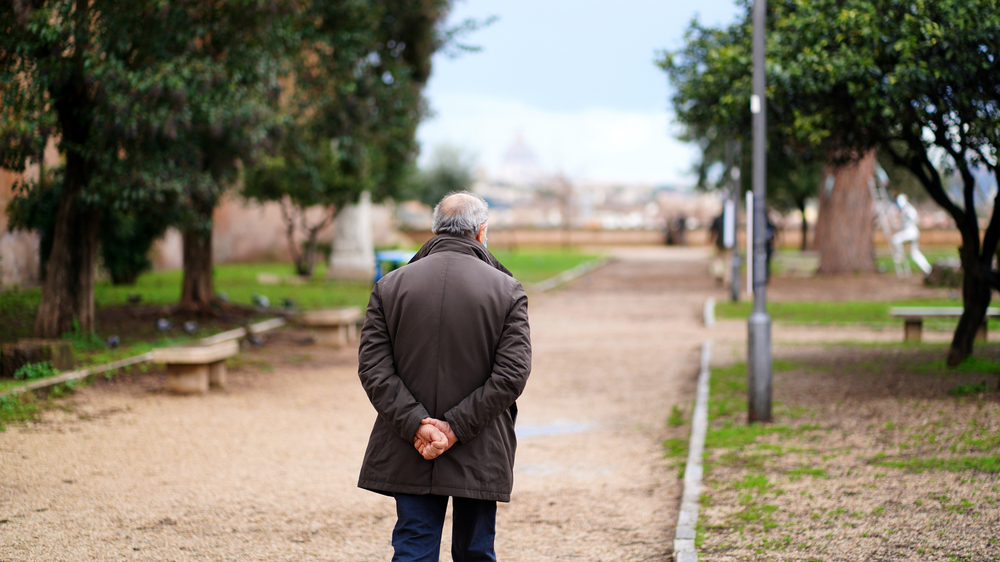Chronic loneliness affects at least one in five Americans, and it’s a special concern for the elderly: over 40 percent of senior adults say they feel lonely “on a regular basis.” Complicating the problem, seniors are already more susceptible to health problems such as high cholesterol, cardiovascular disease, and dementia—and the stress of chronic loneliness pushes them further into the highest-risk brackets.
Older and Lonelier
The elderly are vulnerable to chronic loneliness for several reasons:
Loss of Connections
Growing older often means finding you can no longer participate in favorite activities; seeing old friends pass away; or having to move from a familiar neighborhood to senior-specific housing. If nothing else, you live with the stress of knowing that any of the above could happen sooner rather than later.
Feeling Discarded
Modern society runs on youthful energy, and often seems to have little use for anyone who’s outgrown that. Even amidst family members, neighbors, or caretakers, people can feel totally-alone lonely if their perceived value is gone.
Economic and Technological Limitations
At a time when virtual connections dominate, lacking expertise and resources to stay “wired” is a major contributor to chronic loneliness. In the United States, nearly 5 million people over age 65 live below the poverty line, and nearly one in three senior adults lack online access in their homes. Many have never used even basic internet services.
Chronic Loneliness and Substance Abuse
Besides having grown up in a lower-tech world, many elderly people identify with an era when mental illness—especially behavioral illness, such as being addicted to alcohol or other drugs—was treated as a shameful secret. While chronic loneliness isn’t strictly an illness, it’s exacerbated by feeling deficient and by fear that someone else will learn how out-of-control the pain medication or wine has become. Loneliness can also trigger the substance abuse: the instinctive response to severe emotional pain is to seek any possible means of numbing it. People can even become addicted to medications that were originally prescribed for physical complaints related to chronic loneliness.
Sadly, in the not-so-long-run, chronic drug use increases loneliness rather than relieving it. This is especially true when substance abuse reaches the addiction stage and becomes the center of a life. Friends are forgotten, social outings are neglected, loved ones are pushed away for “meddling” (expressing concern that things are getting out of hand). And as each new dose of a substance wears off, the loneliness comes back, stronger than ever.
Healing Chronic Loneliness: What to Do
Lasting relief from chronic loneliness takes more time and effort than popping a pill—but it’s worth it. If you have an addiction, you need professional treatment, including counseling that looks at alternate options for loneliness relief. (If you have a loneliness problem that’s not accompanied by drug use, consult a therapist anyway, before depression and other health problems get worse.)
And, cultivate the following helpful habits:
Think Positive
A common symptom of chronic loneliness is interpreting everything to reinforce the opinion, “No one likes me, and I don’t blame them.” Instead of counting your supposed deficiencies, make a list of your positive qualities and what you still have to offer the world. Learning to like yourself is the first step in getting others to like you—and not taking it personally when someone doesn’t.
While you’re at it, remember that lonely and alone needn’t be synonymous. Practice appreciating the positive aspects of solitude: time to relax, time to think, time to just be.
Reach Out
Rather than brooding because others don’t call you, take the initiative and call them, whether to invite them over or just to chat.You just might prove the voice of loneliness relief that an old friend was longing for.
You can reach out on a larger scale by volunteering for an organized program: churches, nonprofits, and service groups always need help with any number of things from stuffing envelopes to contacting shut-ins.
Take Care of Yourself
Even if you have major physical limitations, anyone can exercise some proactive options for improving sleep, eating right, staying physically active/getting outside, and self-pampering. Taking responsibility for your health will help you feel all-over stronger and less alone.
Try Something New
You’re never too old to learn. Sign up for a continuing-education class, or look up social groups organized around any topic you wish. Staying active and productive, while making new friends who share your interests, is guaranteed to chase away nagging loneliness.
Help for Loneliness and Addiction in Hemet, California
At Hemet Valley Recovery Center, a department of the Hemet Valley Medical Center, we provide hospital-based care for substance use disorder and geriatric physical illnesses. Plus, we “treat” loneliness by introducing patients to peer support groups and long-term support networks.
You don’t have to suffer alone or resort to hazardous self-medication.Contact us for more information on our Older Adult Addiction Treatment Program and other services.


